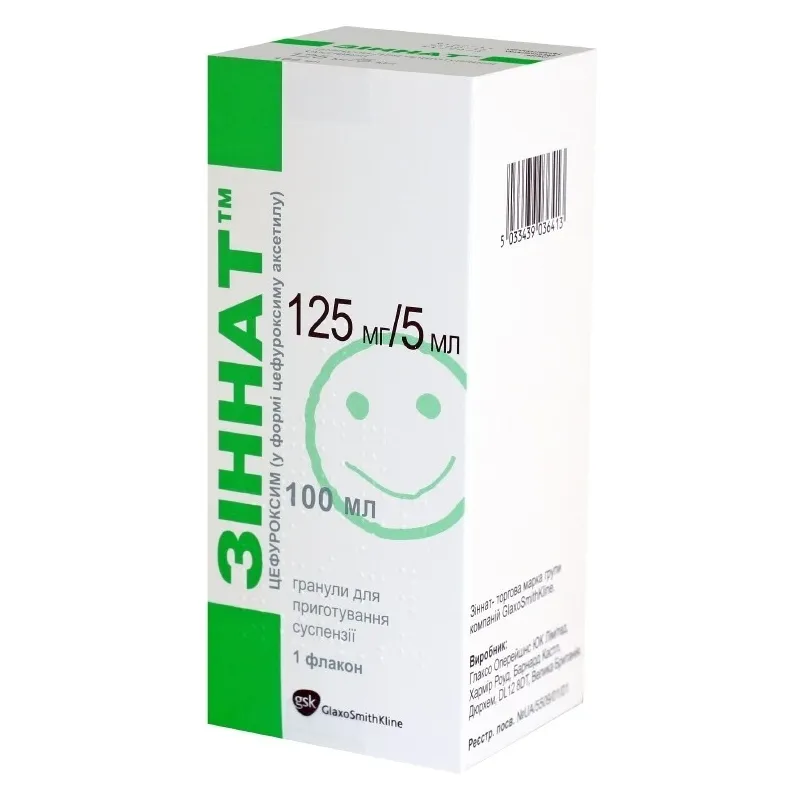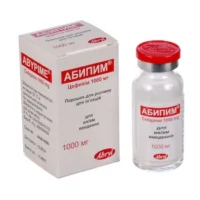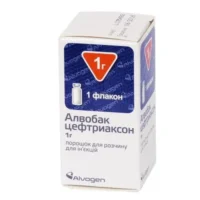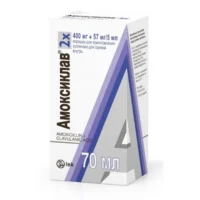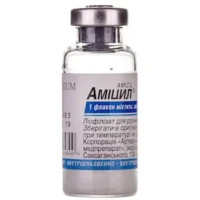Description
Zinnat (Cefuroxime) Granules for Suspension 125 mg/5 ml. 100 ml. Vial №1
Ingredients:
Each 5 ml of suspension contains 125 mg of cefuroxime (as cefuroxime axetil).
Dosage:
The recommended dosage for adults and children over 3 months old is 125 mg to 500 mg twice daily, depending on the severity of the infection.
Indications:
Zinnat granules for suspension are indicated for the treatment of various bacterial infections, including respiratory tract infections, skin and soft tissue infections, and urinary tract infections.
Contraindications:
Do not use Zinnat if you are allergic to cefuroxime or any other cephalosporin antibiotic.
Directions:
Shake the suspension well before each use. Measure the dose with a special dose-measuring spoon or cup. Do not use a regular table spoon.
Scientific Evidence:
Cefuroxime, the active ingredient in Zinnat, is a second-generation cephalosporin antibiotic that works by inhibiting bacterial cell wall synthesis. Studies have shown that cefuroxime is effective against a wide range of bacteria, including both gram-positive and gram-negative organisms.
Research published in the Journal of Antimicrobial Chemotherapy demonstrated the efficacy of cefuroxime in treating respiratory tract infections, with a high rate of clinical success and low incidence of adverse effects.
Additional Information:
-
Storage: Store the suspension at room temperature away from moisture and heat.
-
Side Effects: Common side effects may include diarrhea, nausea, or rash. Contact your doctor if you experience severe or persistent side effects.

